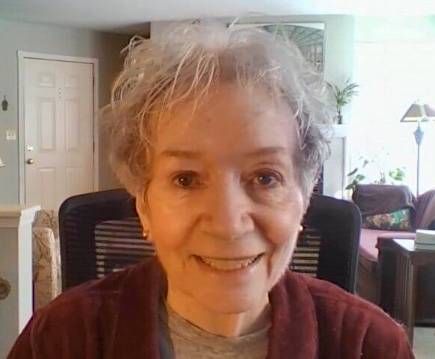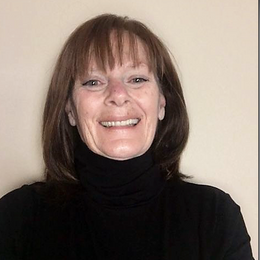76-Year-Old Blogger Navigates Aging With Cancer
Ronni Bennett, a blogger on aging, explores a topic all too familiar to many
"It's a shadow chasing behind you constantly," says popular Time Goes By blogger Ronni Bennett. Her site's tagline is "What it's really like to get old," but Bennett, 76, is now writing about more than aging. Eight months ago, she was diagnosed with pancreatic cancer.

After posting the news that she referred to as a "kick in the gut," it triggered a virtual international support system from readers of love, prayers and assurances. Those living close by also offered food, transportation and even pet-sitting for Bennett's cat, Ollie.
As we grow older, we most likely will become familiar with cancer, whether it's with family, friends or ourselves. In fact, its diagnosis isn't all that uncommon. Age is actually the greatest risk factor, according to Cancer.net, and 60 percent of those with cancer are 65 years and older. This group also makes up 60 percent of survivors.
When readers asked Bennett if she'd write about the daily life of a cancer patient, she said yes, allowing now a glimpse into not just what it's like to get old, but to also be really sick. She openly talks about good days and bad, where she stands on having a bucket list and what it's like to be the most afraid she's ever been.
Here are a few thoughts Bennett, a former network TV producer and writer and managing editor of the first CBS News website, shared during an interview in December:
Next Avenue: What goes through your mind when a doctor tells you it's cancer?
Ronni Bennett: It was an 'oh my God' moment. My father died from pancreatic cancer 35 years ago. Terrible thoughts went through my mind, including 'I'm going to die.' At the same time, I couldn't make sense of it. It took a while before it became real.
Then my surgeon told me only 10 percent qualify to have the tumor removed, and I did. For those who can have this surgery, known as the Whipple procedure, and have chemo, 50 to 60 percent are still alive three years later. So they removed my gall bladder, duodenum (the beginning of the small intestine), a piece of my stomach and the part of my pancreas where the tumor was.
Considering it was such a difficult operation and long recovery, I asked the doctor what would happen if I didn't have the surgery. The answer was that I'd be dead by the end of the year. That really gets you focused.
You didn't want to be a professional patient, but have you accepted that this will be the case, at least for a while?
I didn't want to be defined by the disease or have my life taken up with medical issues, but there's no other way to treat this type of cancer.
I can't escape it. I think about cancer every day. But compared to some people, I also know how lucky I am — that I was eligible for the surgery, that it went well, that I recovered and that my chemo is only for 90 minutes once a week. I'm not saying this is good. No one wants a diagnosis of pancreatic cancer, but it could be so much worse.
A reader commented on what an amazing journey this life is. Do you see your experience as part of that journey?
Absolutely. There are days I don't do as well and those days feel dark, even when the sun is out. Most of us are arrogant in that we think we'll just keep going until one morning when we don't wake up.
I had convinced myself that if I made it to 76 without serious problems, I would be fine. That didn't turn out to be true. But even though I was stunned when I got the diagnosis, I did think 'well, this is going to be a huge part of the adventure.' And it is.
Is there a challenge to balance life with cancer?
I feel a little like I'm in a nice, safe place, under the circumstances. We won't know if this worked until I'm through with the chemo. In March, they could tell me the cancer is still there, so go home and die. Or they could say it looks great, go home and then come back every three months.
These two extremes come to my mind a lot. And as March gets closer, I'm not sure I want to go to the medical appointment. How do people handle the time between, knowing there could be a death sentence waiting? I wonder if you feel good for a month only to have the anxiety start building again.
I can't help thinking what if this chemo doesn't work or how I will die, and what that will be like. Not the exact moment of death, but what it will be like leading up to that time.
But I want to live consciously, and I'm doing the best I can. I'm dealing with a horrible, terrible disease that will someday kill me, so it seems like a good idea to do it my way. I don't want all my time spent on this cancer. Other things are still important. They didn't become less important in the world because of my diagnosis.
Has it been hard to accept this new reality?
The poem To an Aged Bear, written by Native American novelist, poet and Pulitzer Prize winner N. Scott Momaday, speaks to me. I get tears in my eyes when I read it. 'Hold hard this infirmity. It defines you. You are old.' And, 'Mortality is your shadow and your shade.'
At this moment in my life, it's never been as real as it is right now. I'm old. And I have cancer. But I've been writing about aging for 14 years and this is the normal way of life. It's as it should be.
Update: This month, Bennett was told by her doctors that her latest blood tests and CT scan showed no evidence of cancer. Due to her red blood cell counts dropping too low, the chemotherapy had to be stopped, so she received the results earlier than planned.
She says it has taken awhile for the news to sink in and that she's getting used to being a healthy person again. She also acknowledges that this doesn't mean the cancer can't recur and that she'll need to have blood tests every three months as well as CT scans every six months. But for now, Bennett is cancer free and thankful to her readers, friends and neighbors who have given her such support. And she's also very, very happy.


